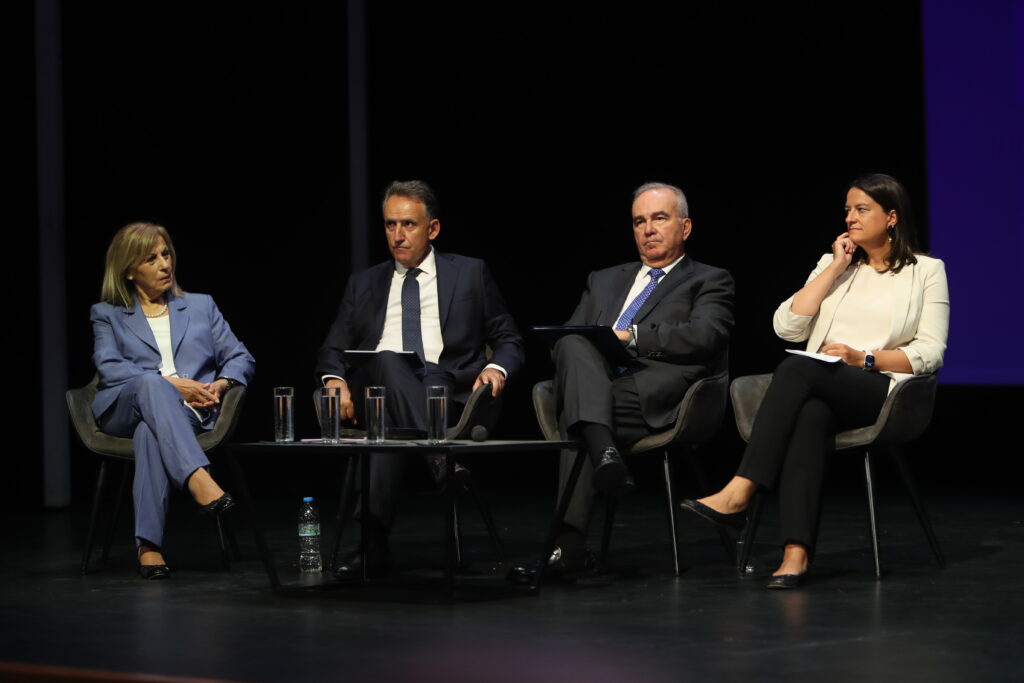“A major transformation has taken place in the labor market over the past six years,” emphasized Labor and Social Security Minister Niki Kerameos, emphatically noting that Central Macedonia is emerging as a pillar of recovery, thanks to targeted planning and a series of interventions that are changing the landscape. “What is happening in Central Macedonia is not just numbers. It’s new realities, new lives, new momentum,” she characteristically highlighted, speaking today at the government’s special event for the projects of Thessaloniki and Northern Greece.
Presenting some indicative data, Ms. Kerameos noted that “unemployment in Central Macedonia has fallen from 20.3% to 13%, while nationwide it has declined to below 8%.” Clarifying that the progress made and presented by her regarding the labor market is not about “beautification,” she admitted that “not everything is rosy, but there is a plan and commitment.”
Kerameos: The Greek government’s strategy is based on six pillars that deliver tangible results in Central Macedonia
Speaking about employment figures, she said they have “skyrocketed” and explained that since 2019, half a million new jobs have been created nationwide – of which 90,000 concern Central Macedonia. At the same time, according to her, there has been a 35% increase in wages and 28.3% in the minimum wage. “Over 75% of workers today are employed full-time – a quiet but substantial quality change in the market,” she said characteristically.
Regarding undeclared and under-declared work, Ms. Kerameos, saying this was “a wound for the country,” emphasized that now two million workers are protected by the digital work card, while in certain sectors declared overtime has increased by over 1,000%. “This is one of the most drastic interventions in favor of transparency in employment relations, leading to a healthier and fairer market,” she noted emphatically.
Speaking about the Greek government’s strategy, she emphasized that it is based on six pillars that deliver tangible results in Central Macedonia.
The first, according to Ms. Kerameos, is supporting vulnerable groups – youth, women, people with disabilities, and citizens over 55, and as she said: “In the region, over 5,000 employment positions for 55+ citizens have already been covered through a special program.”
In the second pillar, that of training and retraining, Ms. Kerameos mentioned that over 420,000 citizens have attended training programs, with 20% coming from Central Macedonia.
About Career Days
Regarding subsidized employment and mainly what happens after program completion, the minister emphasized: “The majority of participants remain in their jobs.”
Concerning vocational education and training, according to Ms. Kerameos, eight EPAS schools operate in the Central Macedonia region, offering specialized knowledge in rapidly developing sectors such as programming, cybersecurity, gastronomy, and others.
About Career Days, “the absolute success story,” as she emphatically characterized them, she mentioned that seven have already taken place in Thessaloniki, with more than 10,000 people finding employment through them. The next ones will follow over two days from September 12, taking place for the first time at the city’s port. Regarding rebrain Greece, which brings back Greeks from abroad, she noted that major Thessaloniki businesses are now attracting minds and skills that once left for abroad.




